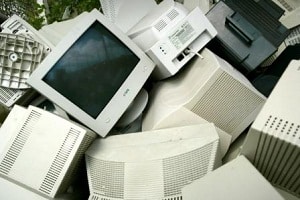A new specification which aims to help reduce illegal exports of WEEE by making it easier to identify whether used electrical equipment is truly fit for reuse and can therefore legally be sent overseas has been launched today (April 18).
The PAS 141 specification is also expected to encourage the growth of the reuse sector by giving potential purchasers of reuse electrical and electronic equipment (REEE) confidence that it has met standards in areas such as safety and guarantees of functionality.

And, it also aims to assure electronics manufacturers that the placing of products on the market for reuse will not adversely affect their brands or reputations for safety and quality.
The specification is formally titled the PAS 141: 2011 Reuse of used and waste electrical and electronic equipment (UEEE and WEEE) and has been published by the British Standards Institute (BSI), on behalf of the department for business, innovation and skills (BIS).
It was developed by a working group run as part of the now-defunct government WEEE Advisory Body, and according to the BSI it is the first of its kind in the European Union. The working group was chaired by Gary Griffiths, head of sustainability for Essex-based IT asset recovery firm RDC (see letsrecycle.com story).
Requirements
Under the PAS 141, anyone involved in WEEE reuse will be expected to meet requirements for testing and inspecting equipment, as well as tracking equipment through the process of preparing it for reuse and recording the tests carried out both for reuse in the UK and overseas.
According to the BSI, the requirements of the specification will help regulatory bodies to differentiate between tested, safe reuse equipment that can be exported overseas and sham reuse equipment that, as waste, should not be exported.
The BSI said: This will subsequently assist in deterring the export of equipment misdescribed [sic] as being fit for reuse to developing countries that has led to dumping of large amounts of non-working and difficult to dispose of WEEE with associated problems in dealing with the hazardous elements of WEEE.
The BSI also said the PAS 141 could allow reuse bodies to provide assurance to consumers who might otherwise have been put off from buying reuse electrical and electronic equipment (REEE) that as well as working, the equipment is free of data and backed by a warranty.
As such, it claimed this could create green jobs in a growing reuse sector.
Mike Low, director at BSI Standards, said: As the need to protect our environment increases, PAS 141 will help make this possible by ensuring the reuse of EEE is safe and functional.
The need for PAS 141 has been demonstrated by the significant interest and support it has received from industry and government departments in the UK, as well as the attention it has gained from other Governments and worldwide organistions.
Accreditation
Related links
The PAS 141 is available via the BSI website, and the UK Accreditation Service is developing scheme guidelines for accrediting certification bodies who plan to run PAS 141 certification schemes for reuse organisations.









Subscribe for free